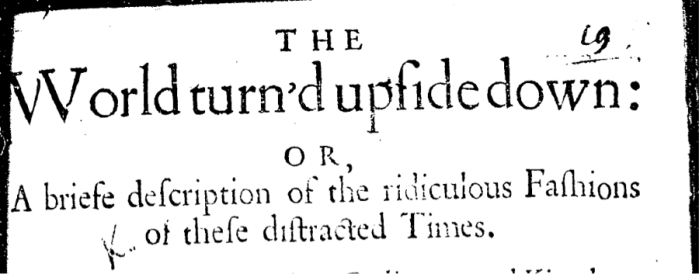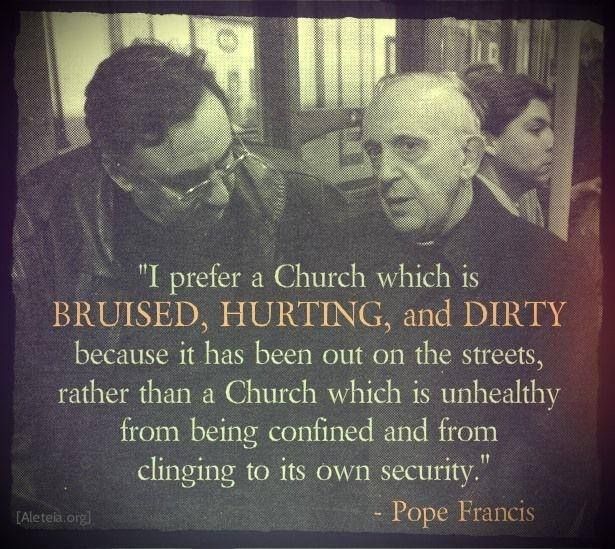A sermon preached at Southminster Presbyterian Church in Boise, Idaho
April 17, 2016
Acts 17:1-9
1 Thessalonians 1
Darleen G. gave me a book that I have shared with many of my clergy friends. It is a mildly irreverent paraphrase of the bible by Mark Russell called, “God is Disappointed in You”, and he condenses much of this section of Acts into this one sentence:
“Paul left Philippi and traveled the world, preaching the word and angering many diverse people in exotic locales”.
I think that sums it up.
The Narrative Lectionary is jumping around a bit in this season of reading through the Book of Acts. Paul and the other followers of Jesus have traveled all over the known world. They are healing people, and introducing them to Jesus, which involves different things in different places. For Gentiles, which is a greek word used here to mean “everyone but the Jews”, more or less, they preach Jesus in a way that uses the pagan gods they worship to help contrast and educate them about Jesus.
And they are wildly successful in many places, baptizing huge crowds. Wild success, of course, also brings wild reaction and opposition from people who profit from things staying the same. The disciples appear in all kinds of courtrooms and spend time in many jails, often being banned from cities.
When they preach in the synagogues, to groups of Jews, it is a different process. It is a family conversation, and you can read the tension that goes along with that relationship and that involvement in this passage. Paul is a Jew, a “jew among jews” as he describes himself, well versed in it all. He persecuted these followers of Jesus before he became one, changing his name from Saul to Paul.
I don’t know about you, but when I hear that language of “but the Jews became jealous”, I feel icky. I think of the years of Christian persecution of Jews, hatred often justified by verses like this. But at this point, the first followers of Jesus were also Jews. They wouldn’t have seen themselves as “other” than their friends in the synagogues. And so when Paul goes and argues scripture with them in the synagogue for three weeks, this is just what good Jews would have done together. Friends, gathering together and trying to convince each other of their arguments, using scripture to interpret their case.
Earlier in his paraphrase, here’s how Russell describes Paul:
“Nobody matches the zeal of a new convert, or gets as much done as someone who doesn’t know what they’re doing. Saul had both of those things going for him.”
So imagine your family gathered around the Thanksgiving table, and an uncle you haven’t seen in a while shows up, and has just given up eating meat, or has just stopped smoking, or decided to vote for Trump or Bernie, or whatever, and decides to spend the entire meal trying to convince everyone of the rightness of his cause. That’s Paul.
The stakes are higher for Paul in the synagogue than they are with the Gentile crowds, in some ways, because these are his people. The stakes are also higher for the Jews in the synagogue. Are they going to listen to Paul and change everything they thought they knew?
Many people are convinced by Paul and Silas. Others are threatened and bring in mobs to protest these people who are turning the world upside down.
The world turned upside down.
I confess that I didn’t know that was a biblical quote until I was well into my adulthood. As a 17th and 18th Century French and English History Major in college (nerd confession) I knew the phrase as it had been applied to the English Revolution in the 17th century, even becoming a popular song sung in bars. Getting rid of the monarchy, even if that only lasted 10 years or so, was an event that turned the world upside down. And even after the monarchy was restored, the idea existed in people’s minds that the king was no longer invincible and that the divine right of the monarchy had been turned upside down and shown to be false.

This idea traveled across the ocean to the colonies with our ancestors, and “the world turned upside down” became a phrase from the American Revolution too, where legend has it that when Cornwall surrendered to Washington, Washington had the band play the World Turned Upside Down song as they marched off the field in surrender. If you’ve listened to the new musical Hamilton, there’s a nod to that legend in one of the songs.
This is one of those situations where the truth of a situation is spoken by the people opposed to the Gospel. I don’t think Paul and Silas were trying to turn the world upside down. They were just speaking the truth they had received about Jesus and about God’s work in the world. They were just naming and claiming what they had experienced.
The local leaders were trying to insult and disparage Paul and Silas. But the world turned upside down is exactly what the Gospel leads to, if we’re paying attention. It should be seen as a compliment and not a disparagement.
When death becomes resurrection and life, the world is turned upside down.
When God saves the world through a suffering servant instead of through military might, the world is turned upside down.
When God extends grace to all of us—to people like you and me—a gift we cannot earn that gives us the courage to try again, to seek forgiveness and reconciliation, to extend second chances, when grace is our gift, the world of retribution and punishment is turned upside down.
Which means the call in our work and life as Christians is a call to being upturned, unsettled, and disrupted more than it is a call to being right side up and comfortable in place.
Is that how we see the Christian experience? Are we turning the world upside down or trying to keep it stable and unchanging?
God has turned the world upside down and yet I wonder if the church is often trying to put it back into place.
What if God is trying to turn us upside down?
I’m not suggesting we should go out and just start causing a ruckus for the sake of making things interesting.
But I wonder if living into our faith requires us to live out of our comfort zone more often than it does.
I saw this cartoon a while back that illustrates it.
One thing the building committee is excited about is that while, yes, the new facility will be good for us, it will also, we hope, be useful and good for the neighborhood. They wanted to design a space that will make Southminster a gathering place for the community and that will equip us to leave the building so we can go out and join in God’s work of turning the world upside down.
In May, you’ll be hearing about, and getting to vote on, what the mission pledge from the campaign will go to support. The session is going to be presenting to you some community agencies to choose from. Places that could not only use the $40,000 from the pledge to make our community better, but that could also provide opportunities for us to join with them in their work, so that when God turns us upside down, and gets us out of the box, we are ready to share God’s love with the world in a way that will change lives.

There are lots of reasons people put forward to explain the decline of American Christianity. And I’m confident there are many factors involved. I don’t spend much time fretting over those reasons because you are not a church that reflects the general decline seen elsewhere. Yes, we’re a church facing change, but not decline.
And I think one of the most compelling reasons put forth for decline is Christianity’s tendency to want to stay in the box, and not allow God to turn us upside down. When you read the book of Acts, and hear the stories of these first churches, you see a lot of upside down. Not much downside up.
When the church spreads to the corners of the world, it is when the message of God’s radical love is shared fearlessly in uncomfortable places and in ways that challenge both the religious and political powers of the day.
American Christianity, I think, tends to spend more of our energy in protecting our power and keeping people comfortable.
So, when you leave this building and take God’s radical message of love to a hurting world, you’re allowing God to turn the church, to turn the world, upside down.
One of the oldest New Testament books, the closest to the actual life of Jesus, is Paul’s first letter to this church in Thessalonica, the church that grew out of these first interactions with Paul and Silas. Here’s the opening of Paul’s letter to this group of people who had been accused of turning the world upside down:
Paul, Silvanus, and Timothy,
To the church of the Thessalonians in God the Father and the Lord Jesus Christ:
Grace to you and peace.
We always give thanks to God for all of you and mention you in our prayers, constantly remembering before our God and Father your work of faith and labor of love and steadfastness of hope in our Lord Jesus Christ.For we know, brothers and sisters beloved by God, that he has chosen you, because our message of the gospel came to you not in word only, but also in power and in the Holy Spirit and with full conviction; just as you know what kind of people we proved to be among you for your sake. And you became imitators of us and of the Lord, for in spite of persecution you received the word with joy inspired by the Holy Spirit, so that you became an example to all the believers in Macedonia and in Achaia. For the word of the Lord has sounded forth from you not only in Macedonia and Achaia, but in every place where your faith in God has become known, so that we have no need to speak about it.
We don’t know a lot about the church in Thessalonica, but from this letter, we hear that they became imitators of Paul and the disciples, becoming an example to all the believers in the area, and their faith became known all around the region.
What letter would Paul write to the church at Southminster?
To the Saints of Southminster, Grace to you and peace.
We always give thanks to God for all of you and mention you in our prayers, constantly remembering before our God and Father your work of faith and labor of love and steadfastness of hope in our Lord Jesus Christ.
For we know, God has chosen you, because our message of the gospel came to you not in word only, but also in power and in the Holy Spirit and with full conviction. And you became imitators of us and of the Lord, sharing God’s love at Grace Jordan Elementary School and at the PRIDE Festival, working for God’s justice by providing resources for many community groups, giving God’s love tangible form by filling hundreds of backpacks with school supplies, so that you became an example to all the believers in Boise and in Ada County. For the word of the Lord has sounded forth from you not only in Boise and Meridian, but in every place where your faith in God has become known, so that we have no need to speak about it.
Love, Paul
Friends, I think the letter God will write about Southminster is a good and hopeful one. I’m grateful for the ways you have turned the world upside down and I look forward to being a part of more of it in the years to come. May you continue to disturb city officials and cause people to consider, if God can defeat even death, what else can God do in our midst?
Amen
And here’s the cartoon I shared with the kids during the Time with the Children:

Cartoon by Cuyler Black from “What’s That Funny Look on Your Faith?“.


